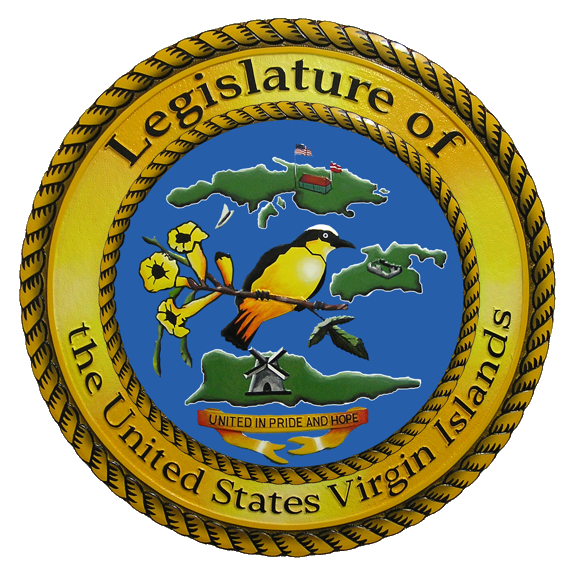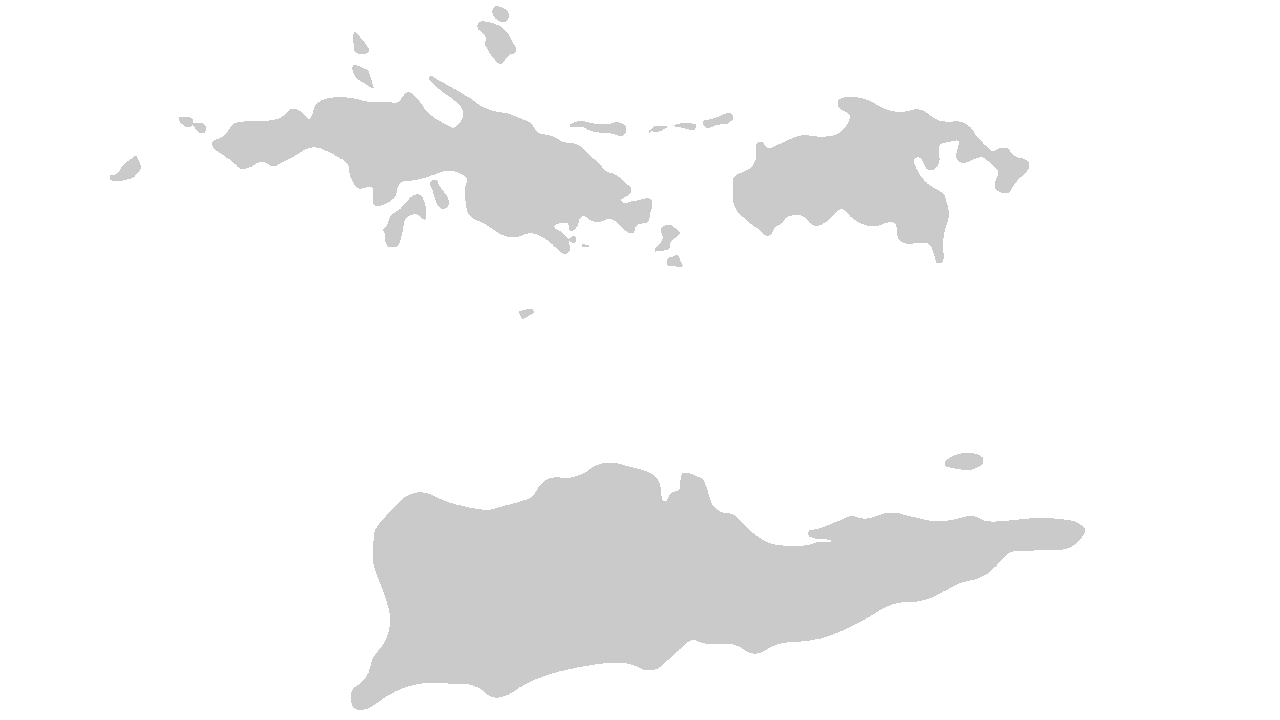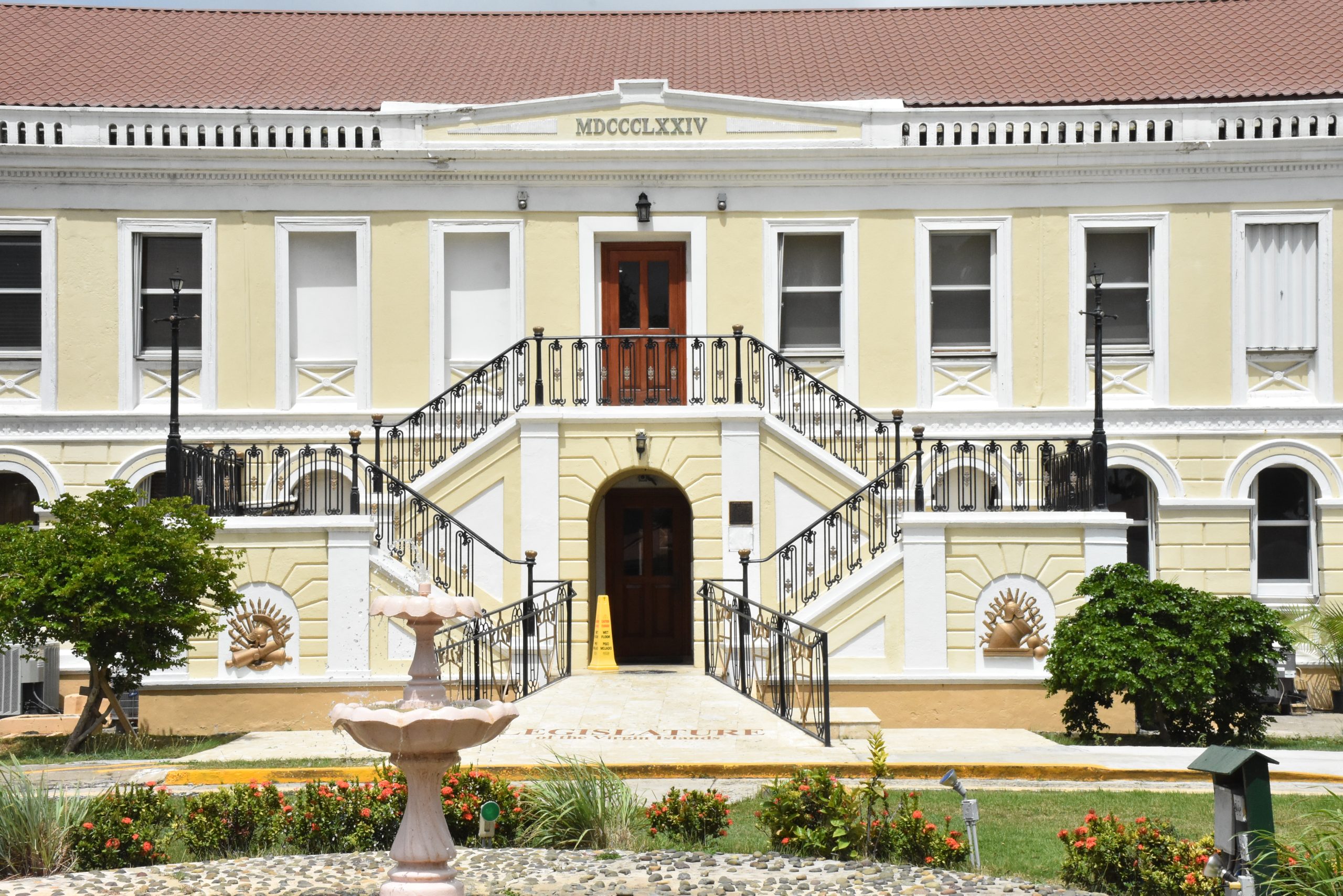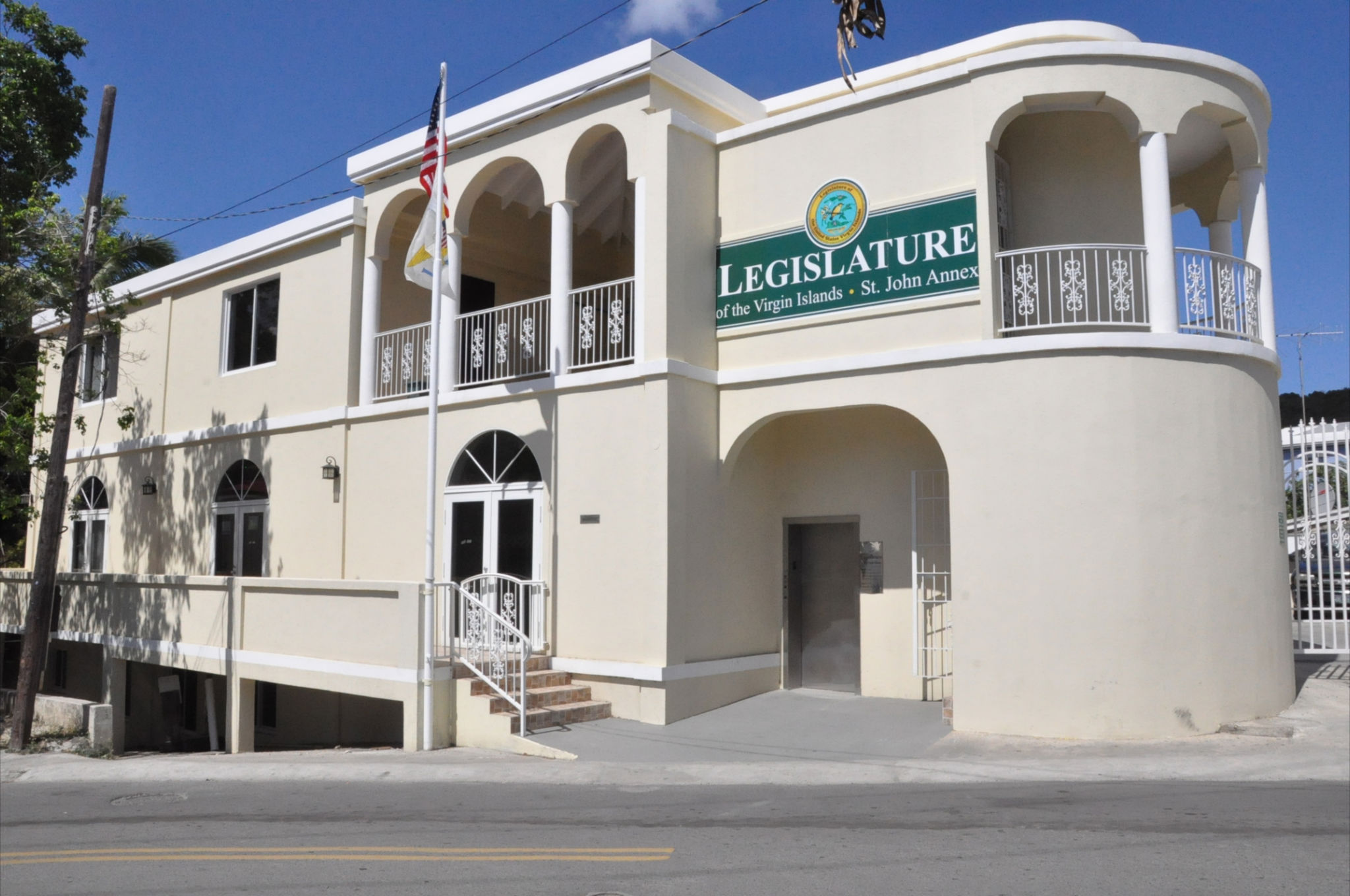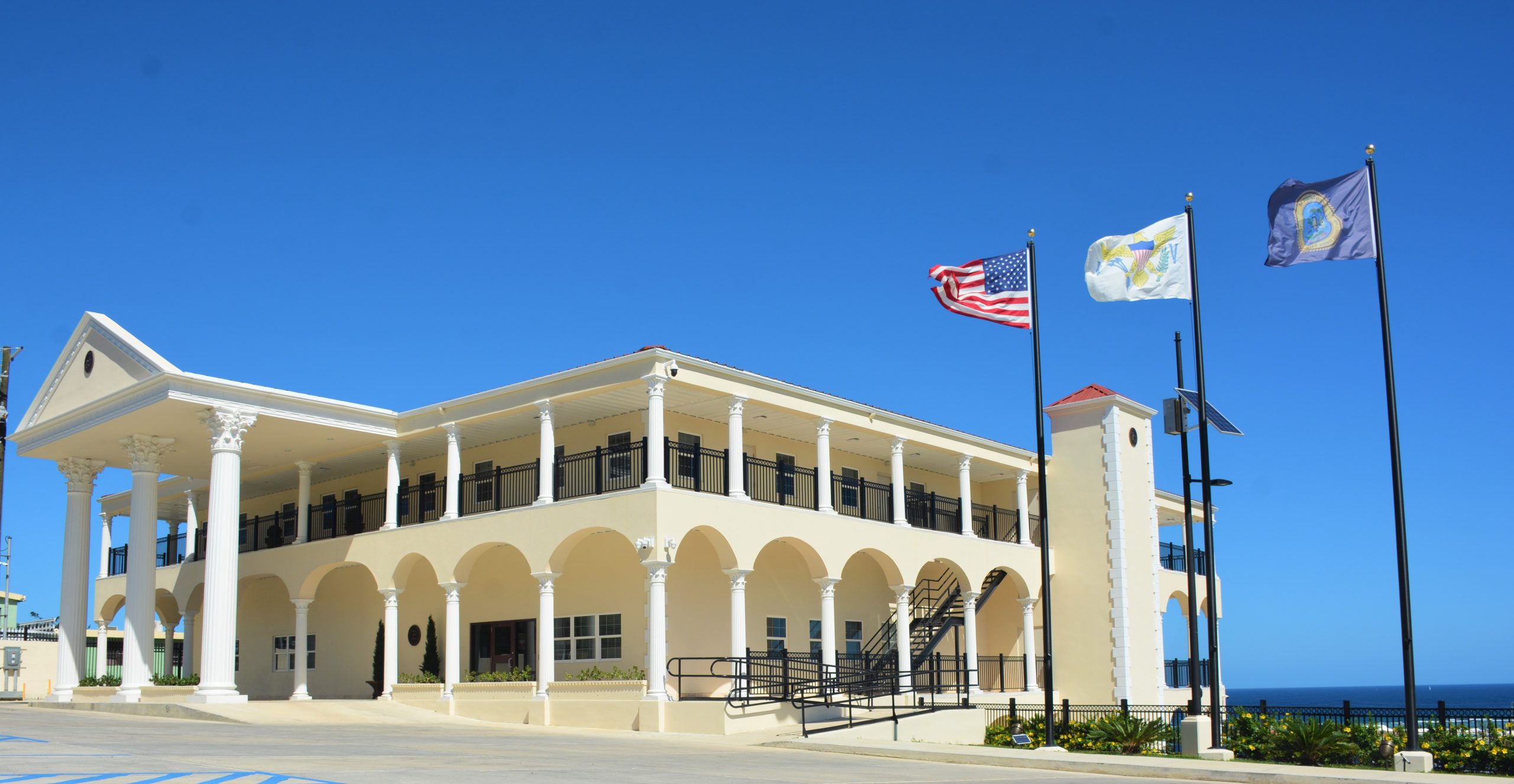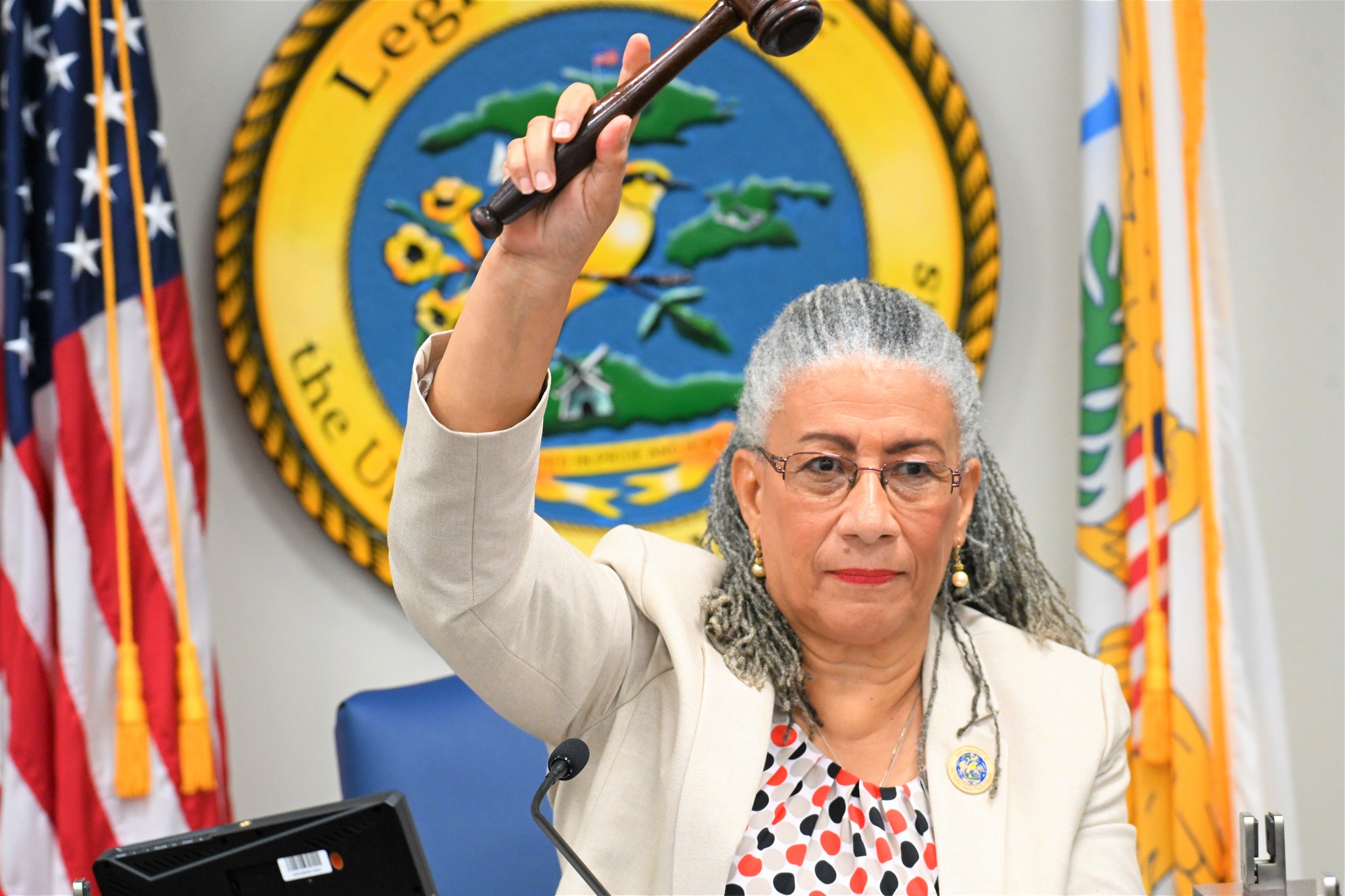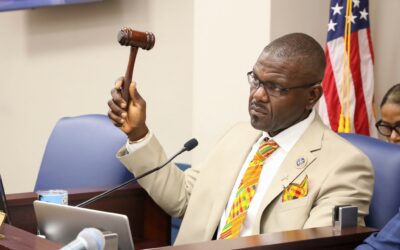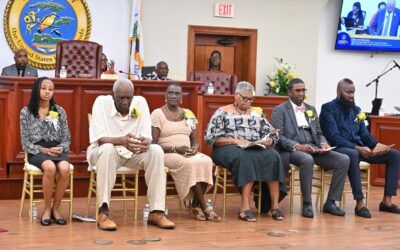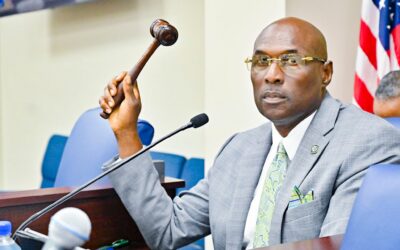The Committee on Education and Workforce Development, chaired by Senator Marise C. James convened in a meeting at the Frits E. Lawaetz Legislative Conference Room. The Committee received a status update from the Virgin Islands Department of Labor, Virgin Islands State Workforce Development Board, the Virgin Islands Career and Technical Education Board, M1 Enterprises USVI, LLC and 340 Integrated Project Team.
Gary Molloy, the Commissioner of the Virgin Islands Department of Labor delivered testimony. Per Molloy’s testimony, the Virgin Islands Department of Labor receives its authority pursuant to Titles 3, 24, 27, and 29 of the Virgin Islands Code, the Workforce Innovation and Opportunity Act of 2014, the Occupational Safety and Health Act of 1970 (OSHA), and other federal laws that govern and enforce fair labor standards and protect the people of the Virgin Islands from any threat to health, morals, and general welfare. The main public facing divisions of the Department of Labor are the Bureau of Labor Statistics, Unemployment Insurance, Workers’ Compensation, Labor Relations to include Compliance, VIDOSH, and Workforce Development to include Youth & Apprenticeship. The Bureau of Labor Statistics conducts a quarterly Census of Employment Wages statistical program survey and publishes the short term and long-term occupational projections, current payroll employment statistics, and quarterly data on employers, employment counts and ranking in the Territory on the Virgin Islands Electronic Workforce System. As of April 2023, the unemployment rate in the US Virgin Islands was 3.1%, which is considered to be full employment. The unemployment rate in the St. Croix District was 3.7%. The unemployment rate in the St. Thomas- St. John district was 2.7%. In the first quarter of 2023, total employment in the Virgin Islands totaled 39,834 and unemployment averaged 1,400.
The Unemployment Insurance Division is currently rolling out the Payroll Variation employer tax methodology. This tax change was necessary and mandated by the US Department of Labor to bring the Virgin Islands in compliance with federal laws and establish an experience rating to equitably distribute insured risk among the Virgin Islands Employers. The tax change will take effect on January 1, 2024. The first quarter will end on March 31, 2024. Reports and payments are due 30 days after the end of each quarter. The unit is also under contract to deploy an employer portal that will allow filing of quarterly reports and payments online. The portal will be launched in the first quarter of 2024. Software applications are also being assessed to protect against fraudulent claims and cybersecurity breachers. As of April 2023, the Virgin Islands Trust Fund has approximately $17,547,982.07 available for payment of future claims. The balance on the debt owed on the Trust Fund Loan is currently $89,678,771.878. The average initial filing of claims for FY2022 was 458, which was a decline from FY 2021 claims which was 1,570. All outstanding disaster related programs and claims have been reconciled, including those for Hurricanes Irma and Maria. Legislation is needed to amend Act 8209 to address the implementation date of the payroll variation from January 1, 2021 to January 1, 2024. Legislation is also needed to change the maximum number of weeks for UI benefits from 26 weeks to 13 weeks.
The Workers Compensation Administration division, along with the Government Insurance Fund, which is housed at the Department of Finance successfully launched a comprehensive Workers Compensation Risk Management System. All manual procedures and spreadsheet-based processes have been replaced with the use of a centralized automated insurance claim system. The integrated systems are currently being finetuned, and staff is being trained on how to use the system. Legislation will be needed and will be submitted to revise and update Title 24, Chapter 11 of the Virgin Islands Code in order to streamline the procedure and processes. The Division of Labor Relations is responsible for all areas of the Fair Labor Standards Act of the Virgin Islands. This includes protections based on wages, child labor laws, wrongful discharge, compliance checks, and the Equal Employment Opportunity Commission (EEOC). If a business has less than 15 employees, it is investigated locally. If it has more than fifteen employees, the intake will be conducted, and the information will be sent to the EEOC for further investigation. Additionally, Title 24, Chapter 15 gives VIDOL the authority to ensure the safety of minors. A Child Labor Certificate must be obtained from the Labor Relations Division for any minor under the age of eighteen, and older than thirteen. Minors between the ages of 14 and 15 cannot work between the hours of 7am and 7pm during the school year, more than three hours in a school day, or 18 hours during a school week. Minors are also not allowed to work in hazardous occupations, including construction, spray painting, or involving exposure to lead or other hazardous materials.
The compliance unit is also responsible for developing strategies at it relates to the Economic Development Unit (EDC) to determine those who are or are not in compliance. This unit works closely with the compliance unit of the EDC as well as all VIDOL divisions to collect the necessary compliance data in order to generate compliance clearance letters for the employers that have or are seeking EDC benefits. The Virgin Islands Department of Occupational Safety and Health (VIDOSH) receives its authority from the Occupational Safety and Health Act of 1970. It is responsible for consultations, conducting inspections and enforcement of all government buildings. Workforce development includes a wide range of activities, policies, programs, employed by several entities to create, sustain, and retain a viable workforce that can support current and future business and industry. The Virgin Islands Workforce Development Board is comprised of twenty-seven members representing government, business, economic development, and education charged with strengthening the workforce development system and determining the demand sectors in the territory. VIDOL implements policies that are passed by the Workforce Board in partnership with the Office of the Governor, the apprenticeship council, Workforce 180, ICF, Equus, the Department of Human Services, Vocational Rehabilitation, Veterans Affairs, the Department of Education, and other private and non-profit organizations. Fifty-three employees and 276 job seekers participated in career fairs held on May 3, 2023 on St. Thomas and May 10, 2023 on St. Croix. Seven career fairs and thirteen hiring events were hosted during program year 2022. 103 job seekers were hired and recorded in the Virgin Islands Electronic Workforce System (VIEWS). Based on the department’s partnership with Equus, 167 participants were trained by the industry demand sectors outlined by the Workforce Development Board. The Skills For Today Program, funded by the Community Development Block Grant-Disaster recovery project, managed by ICF which trained 620 participants.
The VIDOL Youth Services Division develops and administers workforce development programs for youth ages 14 to 25. Youth Services provides year-round training, employment, and educational opportunities for in and out of school youth. The youth team serves more than seven hundred youth annually by combining federal and local funding.
Sonia Boyce, Executive Director of the VI Workforce Development delivered testimony on behalf of Chairman of the Board, Michael Carty. The VI Workforce Development Board is a policy making entity charged with strengthening the workforce development system by collaboratively building strong partnerships with secondary and post-secondary education, economic development, and the public and private sectors to align and improve economic growth in the Virgin Islands. It leads efforts of employer engagements, conducts program oversight of local adult, dislocated worker, and youth workforce activities. In addition, the Board identifies eligible training providers for adult and dislocated workers, negotiates and works to establish local performance accountability measures. The VISWDB oversees the competitive selection of the One Stop Operator and Providers, designates, and certifies the one-stop operator through a competitive process and may terminate for cause the eligibility of such operators, and coordinate activities with education and training providers including providers of workforce investment activities, two providers of adult education, career and technical education and local agencies administering plans under Title 1. The VIWDB has recognized the need to increase outreach efforts into the Virgin Islands communities. It is looking to strengthen its partnerships with local businesses and local educational institutions.
The Eligible Training Provider program is a critical component of our service delivery system. The ETP program provides access to training services that are linked to occupations in demand in the US Virgin Islands. It includes an array of providers who offer programs that meet the needs of the diverse workforce. There are currently nineteen board eligible training providers. The apprenticeship program is a proven approach to preparing workers for in demand jobs and meeting business needs. It combines job related technical instructions with structured on the job learning experiences. There are apprenticeships in the variety of high demand sectors. They include construction, trade, healthcare/ allied health, leisure and hospitality, and the marine industry. The Vocational training programs are designed to equip participants with the practical skills to perform various jobs. These programs focus on construction trades, culinary arts, and healthcare.
Joann Murphy, the Chair of the Virgin Islands Career and Technical Educational Board delivered testimony. Murphy stated that she delivered the testimony with a state of urgency and concern regarding the state of Career and Technical Education in the Virgin Islands. According to Murphy, over the past 2 decades, half of CTE programs of study have been lost, and that is risks losing most of its remaining programs within the next five years. She stated that the situation is dire, and that actions must be taken to prevent the further erosion of CTE. Murphy further stated that the lack of resources within CTE has led to a situation where programs are not properly funded. Without these programs, we risk exacerbating the high rates of unemployment in the community. Murphy stated that it was important to make sure that CTE instructors are paid at competitive rates, and that key requests for resources and staffing are addressed. CTE must comply with applicable federal law, including the Carl D. Perkins Vocational Education Act to ensure that we are making the most of the federal funds that are available for CTE. Murphy urged lawmakers to act and prioritize CTE as a key component of our education and workforce development strategy. According to Murphy, instructors in the St. Croix District had not been paid since February 2023.
Doug Rideout, the CEO and Founder of M1 Enterprises USVI delivered Testimony. According to Rideout, he believes that we have to change the way we look at job creation in the USVI. Rideout stated that they are only interested in in-demand careers and promoting remote jobs and those that do not promote leaving the USVI. The majority of these jobs are in the healthcare and technology fields. Per Rideout’s testimony, there has been high interest in the programs that M1 Enterprises offers, with 190 Virgin Islanders contacting the company about working remotely by April 5, 2023. M1 is an RT Park Company and received a loan, making it possible for those Virgin Islanders to access the program. Cohort one, the Medical Biller Job Trainer graduated with an 80% graduation rate. As of May 22, 2023, there have been more than 323 applicants. M1 currently has programs in medical billing, outpatient medical coding, and inpatient medical coding. There are plans to expand the training to include Medical Auditing, Clinical Documentation Integrity, Cyber Security, and AWS Cloud Computing. The criteria for M1 approved programs are 1 year or less training time, working remotely or does not require leaving or promoting leaving the USVI, and programs in the healthcare and technology field.
M1 has begun processes to secure additional funding through various sources. A letter of intent has been submitted between LIFT technologies and M1 to provide department of Defense Funding for Workforce Development Career training provided by LIFT in combination with M1 training. The Department of Education has submitted a proposal to introduce Medical Technology & Interactive Anatomy into the high schools. The program is expected to launch on June 5, 2023. A teaming agreement has been submitted to the Medical Simulation Center to provide Interactive Career Training. A student line of credit-grant program plan has been submitted for consideration that would allow participants to take a line of credit (3,000 to $6,000) for a 12-week job training program. It is proposed that if the student completes the program and lives in the USVI for two years after completion, the line of credit/loan would be forgiven. This would require government funding.
Chairperson James stated that she was concerned about Career and Technical Education but stated that she would not let it fall. Chairperson James also voiced optimism in resolving labor issues as well as resolving the housing crisis, stating that the issues were intertwined.
Senators present at today’s Committee meeting included Marise C. James, Donna A. Frett-Gregory, Diane T. Capehart, Dwane M. Degraff, Kenneth L. Gittens, Javan E. James, Sr., Franklin D. Johnson, and Carla J. Joseph.
